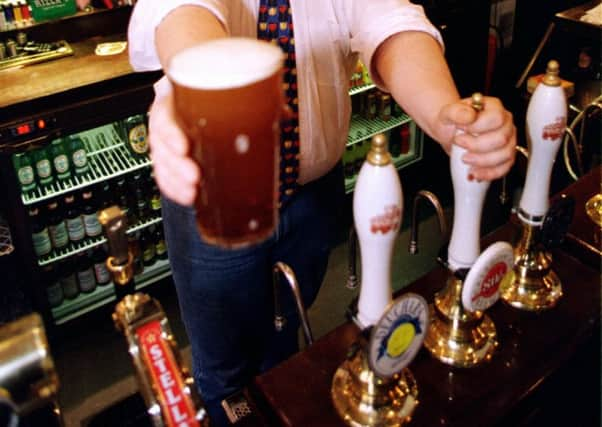Stop picking on our pubs, they are force for good


I attended a reception in the Scottish Parliament recently where the MSP hosting the event said something that caught my attention. The Scottish Government, they said, seemed obsessed with two things – the amount of money that the whisky industry generates for the Scottish economy, notwithstanding the fact that most of it goes into the coffers of multinational drinks conglomerates (although that is an argument for another time) and those people who have alcohol-related problems.
What this doesn’t take account of is the 90-odd per cent of us in the middle who neither work in the whisky industry nor abuse alcohol. Politicians are too quick to talk of Scotland’s troubled relationship with alcohol – something that I simply don’t accept is the case.
Advertisement
Hide AdAdvertisement
Hide AdThe vast majority of people who drink, whether it is beer, wine or spirits, do not abuse alcohol and suggesting that a whole country has a problem, especially at a time when alcohol consumption is on a historic downward trend, strikes me as lazy politics and that the specific issues relating to alcohol abuse are not being properly addressed.
What is even worse is that, when writing and broadcasting stories about alcohol-abuse figures, media outlets will use photographs or film of a pint of real ale being poured through a hand pump – one of the lowest-strength drinks available in pubs.
As I have said many times, whatever issues there are in this country with alcohol abuse, well-run community pubs are part of the solution and cheap supermarket hooch is almost the whole problem. Wouldn’t it be more apposite to show a photograph of someone coming out of a supermarket with a trolley laden down with industrial quantities of cheap booze?
Pubs, and those of us who still use them, seem to have been forgotten in the headlong dash to label Scotland as a nation of inveterate drunks who need saving from themselves. The pub industry is just about the most heavily regulated sector of the Scottish economy yet, despite this, pubs continue to be a big source of employment for people under 26 – the very group that have suffered the most in terms of employment opportunities in the economic downturn – to raise millions of pounds for hundreds of charities and, the length and breadth of the country, to be the hub of community life. It is a place to meet friends, old and new, exchange news and gossip and participate in community-focused activities. It is very well known that talking to people, especially if you live on your own, is good for your mental health.
Yet, even since the implementation in 2009 of the Licensing (Scotland) Act 2005, more and more regulations have been heaped on the trade – it is almost as if politicians think that by closing pubs, alcohol abuse will fall because then it will be left to the big, cuddly supermarkets to sell all alcohol and everything will be fine where, in actual fact, the opposite is true with alcohol-related crime and health issues rising in line with the supermarkets’ increasing share of alcohol sales.
What publicans need now is not favours, but fairness. Pubs are the only businesses where their business rates are dependent on their turnover, rather than the rateable value – a representation of annual rent that the property could be let for on the open market – where successful businesses are penalised in this way, and the Scottish Government should start by launching an investigation into this anomaly with a view to subjecting entrepreneurial publicans to the same business rates regime as everyone else.
Figures from the Scottish Parliament Information Centre show that publicans pay an average of 14.7 per cent of their trading surplus in non-domestic rates, while the national average for all business, excluding the financial sector, is 4 per cent.
No matter what some people may think, in virtually every case, an empty pub does no-one any good.
Advertisement
Hide AdAdvertisement
Hide AdThe Scottish Government has launched an investigation into the possibility of introducing a market-rent-only option for tenants of the large, pub-owning companies to ensure that they have at least the same rights as their colleagues in England and Wales. It is surely not too much to ask that they do the same in respect of business rates.
With an election only ten months away, now is the time to lobby all political parties to ensure that they have policies in their manifestos that give the pub trade some much-needed fairness and get behind an industry that is a force for good in Scotland.
• Colin Valentine is national chairman for Camra (the Campaign for Real Ale) www.camra.org.uk
SEE ALSO